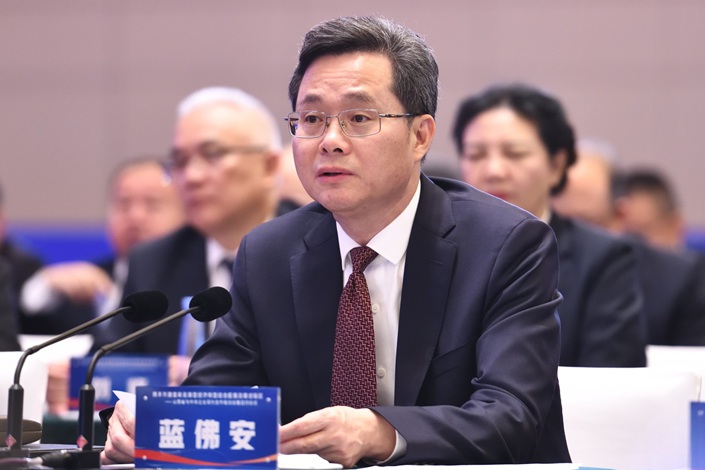
Amid a deepening economic crisis caused by a collapsing real estate sector, China has nominated a new finance minister charged with navigating the country out of hazardous waters. According to a statement issued by the finance ministry on Thursday (Sep 28), financial specialist Lan Foan will now lead the Ministry of Finance’s Communist Party section, succeeding Liu Kun.
The 61-year-old politician was previously the party chief of the northern Chinese province of Shanxi.
Liu Kun, who has held the coveted position since 2018, will reach 67 this year, much past the typical retirement age of 65 for ministerial-level public workers.
‘Progressive development’
The shift in leadership in the finance ministry, according to experts, is a positive move for the country’s economic prospects.
According to SCMP, Zhang Zhiwei, chief economist at Pinpoint Asset Management, the finance ministry reshuffle is a “positive development” for the economy and “indicates the policy stance may become more expansionary,” although it may take time.
“The change of policy may not happen immediately, as we are already close to the end of this fiscal year. Nonetheless, this move makes a change in fiscal policy more likely next year, which is positive for the economy,” he said.
What are the challenges ahead for Lan Foan?
One of the most difficult problems facing Lan Foan would be addressing the province’s looming debt crisis. China has long depended on provincial governments to pump financial stimulus into the economy, but experts now warn that the central government should bear a greater share of the responsibility.
China’s unknown debt problem
Local government finance vehicles (LGFVs) in China may also pose default risks, owing to decreased revenue growth forecasts in some of the country’s most indebted regions.
LGFVs are distinct entities that exist at the nexus of public and private and were originally created to circumvent borrowing restrictions imposed on local governments. Since the 2008 global financial crisis, their prevalence has increased.
According to IMF estimates, China’s overall LGFV debt has risen to a record 66 trillion yuan (equal to US$9 trillion) this year, more than twice the 30.7 trillion yuan recorded in 2017.
